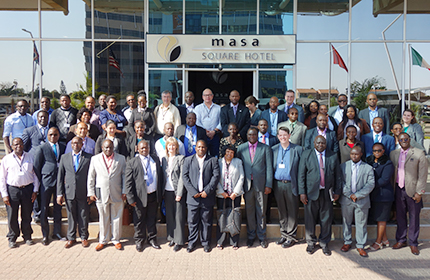Southern Africa Consultative Meeting on Gene Drive Technology
-

June 26, 2017-June 28, 2017
Gaborone, Botswana
The New Partnership for African Development (NEPAD) organized a regional consultation that examined the basic principles of environmental risk assessment, the process of how environmental protection goals are translated into operation endpoints for risk assessment (“problem formulation”), and the application of this process to the use of gene drives for either population modification or population suppression in mosquito vectors of malaria.
The goals of the workshop were to develop a more informed understanding of plausible risks associated with the use of gene drive strategies to control mosquito-borne diseases in Southern Africa, and make recommendations about the research needed to provide better information to address those risks. NEPAD requested that the Agriculture & Food Systems Institute assist them in setting the agenda for the scientific program, and to guide participants through a problem formulation exercise that can help inform future work. Agriculture & Food Systems Institute’s efforts are supported by a grant from the Foundation for the National Institutes of Health.
This was the third meeting in a series of consultations in Africa. To view the program from the first consultative meeting held in October 2016 in Ghana, click here.
To learn more about the Agriculture & Food Systems Institute’s program on environmental risk assessment of gene drives, click here.
